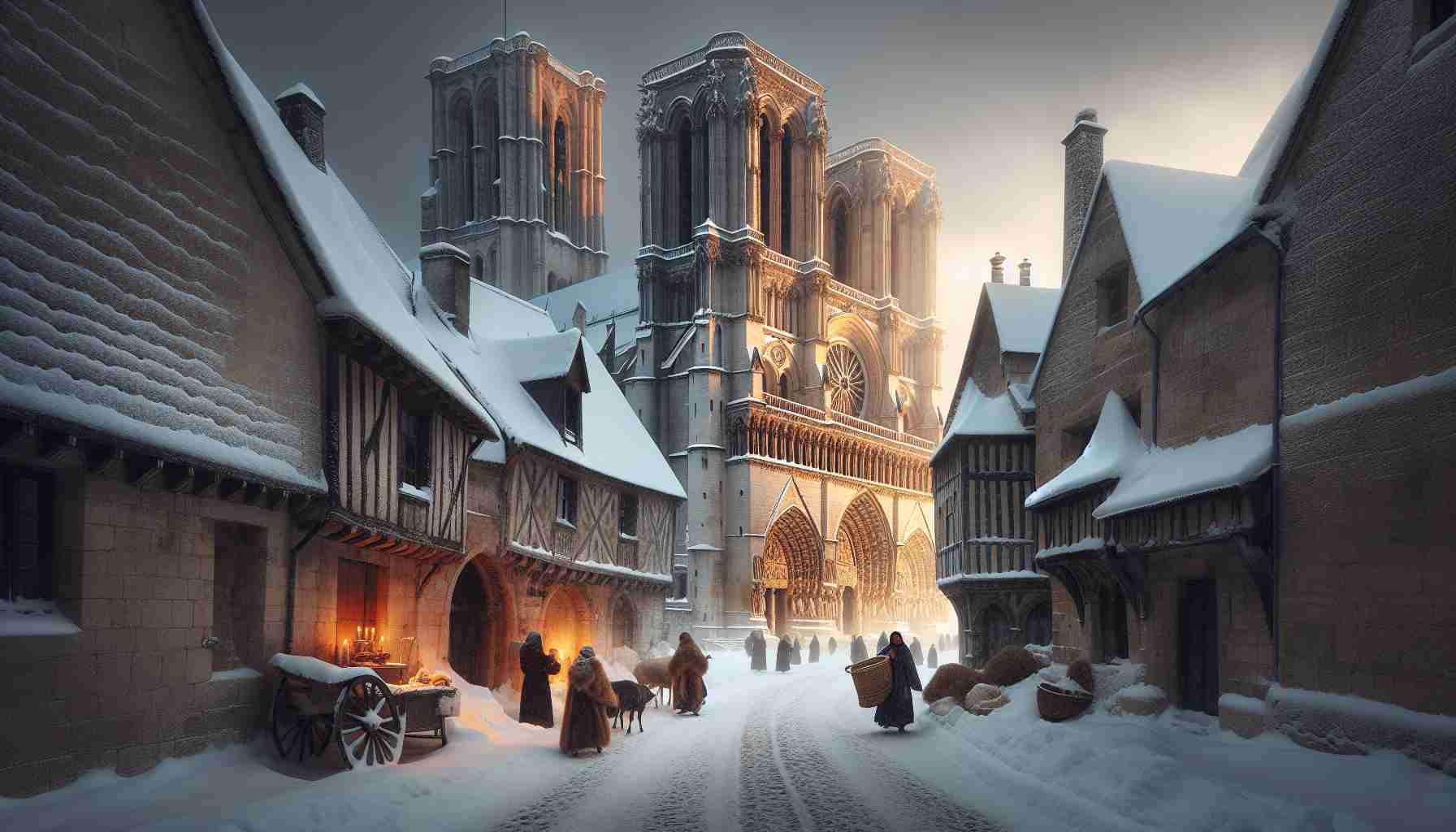

Snow drifted through the narrow alleys of Noyon, muffling the footsteps of a midwife hurrying through the cathedral square, shawl clutched tight beneath her chin. On this gray morning—July 10, 1509—the bells above the Romanesque tower of Notre-Dame clanged low and ancient, echoing over timber-framed roofs and cloistered courtyards. A son had been born to Gérard Cauvin, a cathedral notary and ambitious servant of the Roman Church. No star lit the sky, no thunder split the clouds. But in a candle-lit chamber beyond carved oak and cold hearthstone, a cry pierced the hush—thin, insistent—as if the world’s future stirred awake.
They named him Jehan. No one imagined that this child, quiet and sharp-eyed, would rise to contend with Rome itself—that from the cradle of the Church he would one day rend a path through centuries of tradition. Yet already the invisible hand stirred. As the Apostle wrote, “In Him we were also chosen… according to the plan of Him who works out everything in conformity with the purpose of His will” (Ephesians 1:11).
The boy walked early and spoke late. While other children chased crows through the cathedral garden, Jehan lingered in the shadows of arches, watching sculpted saints gaze skyward in stillness. His father’s standing granted him a place among the canons’ pages—learning Latin beside priests and scribes, his small fist curled around quills far too large for his fingers. They taught him grammar, scripture, law. But deeper still, in silence, another Teacher stirred.
By sixteen, he stood among the halls of the University of Paris—stone cloisters humming with Aristotelian logic and the thrum of dissatisfaction. There, humanism, like smoke from the hearth, had begun to escape its confines. The tumults of Wittenberg reached across kingdoms, and whispers of reform echoed through lecture halls. Luther’s theses, barely a decade old, hovered at the edge of every scholar's breath. Yet Jehan—now Jean Calvin to the French tongue—burned with a different fire: not protest for its own sake, but clarity, an aching desire to carve God’s truth from the turbulence of men.
He shunned the gaudy debates of ecclesiastical politics. Instead, he turned to Scripture, laboring over its ancient tongues by candlelight in Strasbourg, then Basel, his ink-stained hands trembling with divine urgency. In 1536, he released the Institutes of the Christian Religion, a work concise and blazing with purpose—a confession, a treatise, a weapon. Within its pages beat the heart of Reformed theology: the utter sovereignty of God, the total depravity of man, the necessity of grace and election. It was not rebellion but revelation. Calvin sought not to destroy the Church but to strip its gold-leafed idols and point the seeker to Christ alone.
Geneva was a modest city of stone walls and strife when Calvin arrived. Its council called him reluctantly, and he answered with equal hesitation. But a man must go where God's hand leads. From the pulpit of St. Pierre Cathedral, he poured forth sermons daily, walking in the footsteps of the prophets. No ecclesiastical ornaments cluttered his chapel; no candles, no incense—only the Word, spoken plainly, with trembling authority. In cold Swiss winters, the faithful packed the nave to hear him declare, “God’s providence is not idle, but active and mighty.”
Resistance roared in fits. Calvin was exiled once, hated often. Grave markers stood witness to the blood shed in Geneva’s convulsions, and even his friends called him severe. Yet it was discipline, not tyranny, that he wielded—order born of reverence. He taught that no inch of life escaped the sacred: the governance of church and state, the conduct of tradesmen, the household prayers of mothers—all were offered to the Lord's sovereign flame.
His theology crossed borders like wildfire—France, Scotland, the Netherlands, eventually shaping the Puritan conscience in New England. Pastors, printing presses, and exiles carried the doctrines he forged into every tongue, across every sea. Even his detractors could not ignore the power and precision of his vision.
In his final days, weakened by years of labor and illness, Calvin refused to soften his words or be carried from his work. He preached lying down when he could no longer stand. When asked why he drove himself so mercilessly, he answered, “Would you have the Lord find me idle when He comes?”
He died in 1564, buried in an unmarked grave as he had wished—lest men venerate dust and forget truth. Even in death, he sought no crown, only obedience.
The boy from Noyon had become more than a scholar. Through Scripture, he became a voice in the wilderness, calling the Church back to first things. His God was not a tame deity of indulgences but the unsearchable Sovereign, whose will alone gives meaning to suffering and joy alike. As in Ephesians, so in Calvin’s life: it was not ambition but providence that carved the path.
To walk those ancient alleys of Noyon now is to tread a quiet riverbed from which a flood once burst. And though the cathedral spires still ring with Mass, somewhere in the unseen air, a whisper remains: study, preach, reform. Trust the Word. For though the child’s name is carved nowhere in stone, the Church he shaped still stands—reverent, reformed, and resolute.